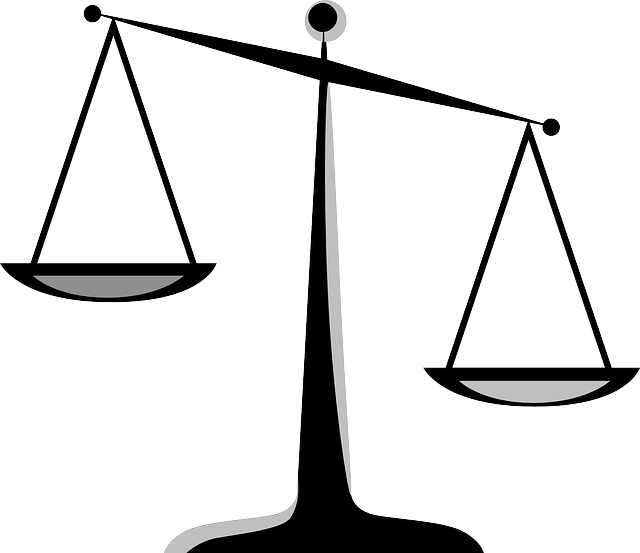The Legal Grounds for Criminal Appeal are vital to ensuring justice and fairness within the criminal justice system, allowing defendants to challenge convictions based on errors during trial. Key principles like presumption of innocence and right to a fair trial guide procedures, with prosecutors and defense attorneys playing crucial roles in upholding accuracy. Appeals center around issues like ineffective counsel, misinterpreted evidence, and constitutional right violations, with complex interpretations required for white-collar crimes. Defendants may challenge jury trials, investigative errors, procedural mistakes, or sentencing, aiming to correct miscarriages of justice while protecting individual rights. Robust legal representation is essential, with successful appeals often relying on demonstrating lower court errors in interpreting the law or ignoring relevant evidence.
Criminal Law Enforcement: Navigating Justice Through Appeals
In the pursuit of fairness, understanding the intricate dance between criminal law enforcement and appeal processes is paramount. This article explores the fundamental principles and mechanisms within criminal justice systems, focusing on the legal framework that governs appeals. We delve into the rights of defendants to challenge convictions, analyzing the grounds that constitute valid legal appeals. Through case studies, we uncover common issues, shedding light on the role of legal professionals in navigating these complex procedures, particularly regarding Legal Grounds for Criminal Appeal.
- Understanding Criminal Law Enforcement: Key Principles and Processes
- Legal Framework for Criminal Appeals: The Right to Appeal
- Grounds for Appeal: When Defendants Can Challenge Their Conviction
- Common Issues in Criminal Appeals: Case Studies and Trends
- The Role of Legal Professionals in Navigating Criminal Appeal Procedures
Understanding Criminal Law Enforcement: Key Principles and Processes

Criminal Law Enforcement is a complex web of principles and processes designed to uphold justice and protect society. At its core, it involves understanding the legal grounds for criminal appeals, which are crucial in ensuring fairness and accuracy within the justice system. These appeals provide a mechanism for reviewing cases where individuals believe their rights have been violated or where there was an error in judgment that led to an unfair verdict.
The key principles of Criminal Law Enforcement include the presumption of innocence, burden of proof on prosecutors, and the right to a fair and impartial trial. These principles are pivotal in shaping the processes involved, from arrest and charging to investigation and, ultimately, jury trials or other adjudicative procedures. An unprecedented track record of winning challenging defense verdicts often hinges on these foundational concepts, underscoring their significance in navigating the intricate landscape of criminal law enforcement.
Legal Framework for Criminal Appeals: The Right to Appeal

In any criminal prosecution, defendants have a fundamental right to appeal their convictions if they believe there was an error in their trial. The legal framework for criminal appeals is established by statutes and case law, providing clear guidelines on when and how an appeal can be pursued. Understanding the legal grounds for criminal appeal is crucial for both prosecutors and defense attorneys, as it plays a pivotal role in ensuring fairness and accuracy in the justice system. Defendants may seek relief if they can demonstrate that their trial was not conducted fairly or that there were procedural errors that affected the outcome of their case.
These appeals often center around various issues, including claims of ineffective assistance of counsel, misinterpretation of evidence, improper jury instructions, or violations of constitutional rights. For instance, in white collar and economic crimes cases across the country, challenging defenses have become more sophisticated, with appeals focusing on complex legal interpretations and the application of specific statutes. Winning challenging defense verdicts requires a thorough understanding of both the facts of the case and the applicable laws, as well as a strategic approach to presenting arguments that are likely to persuade higher courts.
Grounds for Appeal: When Defendants Can Challenge Their Conviction

In many legal systems, defendants have the right to appeal their conviction if they believe there were legal grounds for criminal appeal. These grounds can vary significantly based on jurisdiction and the specifics of the case, but common reasons include issues arising during jury trials, errors in all stages of the investigative and enforcement process, or procedural mistakes that could have influenced the outcome of the trial. Defendants might challenge evidence presented as inadmissible, question the fairness of their trial, or argue against excessive sentencing.
The concept of legal grounds for criminal appeal is crucial across the country, ensuring a check on potential judicial errors and maintaining the integrity of the criminal justice system. It allows for a thorough review of cases, providing an opportunity to correct miscarriages of justice and uphold the rights of individuals accused of crimes.
Common Issues in Criminal Appeals: Case Studies and Trends

Criminal appeals often center around legal grounds such as procedural errors, insufficient evidence, or improper sentencing. Case studies reveal that defendants frequently challenge their convictions and sentences by appealing to higher courts, citing violations of their constitutional rights. Trends indicate a growing number of appeals focused on issues related to jury instructions, witness credibility assessments, and the proportionality of sentences.
The philanthropic and political communities have taken note of these trends, underscoring the need for thorough legal representation in general criminal defense cases. Many successful appeals hinge on demonstrating that lower courts erred in their interpretations of the law or failed to consider relevant evidence. With an unprecedented track record of successfully arguing appeals, experienced legal advocates play a pivotal role in ensuring justice is served and protecting the rights of those accused of crimes.
The Role of Legal Professionals in Navigating Criminal Appeal Procedures

In the realm of criminal law enforcement, legal professionals play a pivotal role in navigating complex appeal procedures. When individuals are convicted and seek to challenge their sentences or decisions, it is these legal experts who guide them through the intricate process of filing appeals. Understanding legal grounds for criminal appeal is crucial for both attorney and client. They must carefully review the case, identify potential errors, and present compelling arguments to advocate for his clients’ rights.
By utilizing their extensive knowledge of the law, attorneys can ensure that appeals are filed within the respective timeframes and adhere to strict procedural guidelines. Their expertise is instrumental in achieving a complete dismissal of all charges or significant reductions in sentences. This process demands meticulous attention to detail, as even subtle errors in documentation or procedural lapses could hinder the appeal’s success. Legal professionals, therefore, serve as navigators, fostering a just outcome for their clients within the legal framework.
Criminal law enforcement is a complex and critical aspect of any society, and understanding its principles and processes is essential. The article has explored various facets, from the foundational key principles to the intricate navigation of criminal appeal procedures. By examining legal frameworks, common issues, and the role of professionals, readers now possess a comprehensive view of the rights and challenges within the system. In terms of legal grounds for criminal appeals, recognizing when defendants can challenge their convictions is paramount, ensuring fairness and justice in the criminal justice system.






